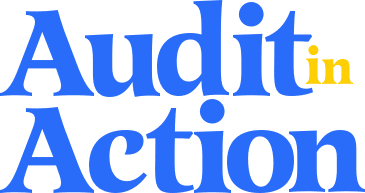Building Trust in ESG Reporting
 This is a watershed moment for environmental, social, and governance (ESG) reporting.
This is a watershed moment for environmental, social, and governance (ESG) reporting.
Investors increasingly allocate resources to public companies with strong ESG commitments and practices. Sustainable funds in the United States are continuing at a record pace, reaching nearly $31 billion through the third quarter of 2020—a sharp increase from 2019, according to Morningstar. With the increasing investor attention, public companies are also ramping up communication about their sustainable business practices.
“Quite honestly, I think there has been a culture shift,” said Maura Hodge, National ESG Assurance Leader at KPMG. “The reality and impact of climate change is hitting home with the wildfires and hurricanes. And the pandemic has put a spotlight on employees’ health and safety this past year,” she said.
Despite the trend toward more ESG reporting, investors cite the lack of broadly adopted ESG reporting standards as one of the biggest challenges to comparing ESG practices from one company to the next. In many cases, it’s apples to oranges.
“Regulators, investors, and consumers have all expressed increased interest in how companies are responding to the pandemic and what impact it has had on their workforce,” said Sheri Wyatt, Assurance Diversity and Inclusion Leader and Sustainability Partner at PwC. “With this heightened attention comes a need for disclosures and also accountability for the commitments companies are making, particularly related to their employees.”
ESG reporting contrasts with the well-established standards that exist for reporting and evaluating a company’s financial position and performance. ESG reporting needs a globally accepted system built from existing standards and frameworks, and adapted to market needs, to help ensure that companies put forth readily comparable ESG information for their investors and other stakeholders.
“While financial statement reporting is relatively mature, once we get established standards, whether metrics or otherwise, I think companies are going to take a page from their financial reporting playbook to get ESG reporting right,” said Wyatt.
So where do auditors fit in? In their public interest role, public company auditors play a significant part in the flow of reliable information for decision making. Auditors are leaders in bringing accountability, standards-based analysis, and objectivity to the review of company financial statements, and these skills are transferable to other areas of company-reported information like ESG practices.
“The role of auditors is to help protect capital markets, and increasingly the capital markets are demanding and making decisions based on ESG information,” said Hodge. “Because auditors are steeped in accountability and standards-based analysis, it’s really a natural fit for auditors to be looking at this data.”
Prominent public companies are already moving in this direction. Johnson & Johnson, Guess?, and Etsy, to name a few, are pioneers that obtain assurance on their ESG reporting, and we anticipate that more companies will take this approach in the near future.
Ultimately, auditor assurance can give investors the same confidence in ESG information they already have in financial reporting. That’s a win for investors, a win for companies committed to ESG, and a win for capital markets.
